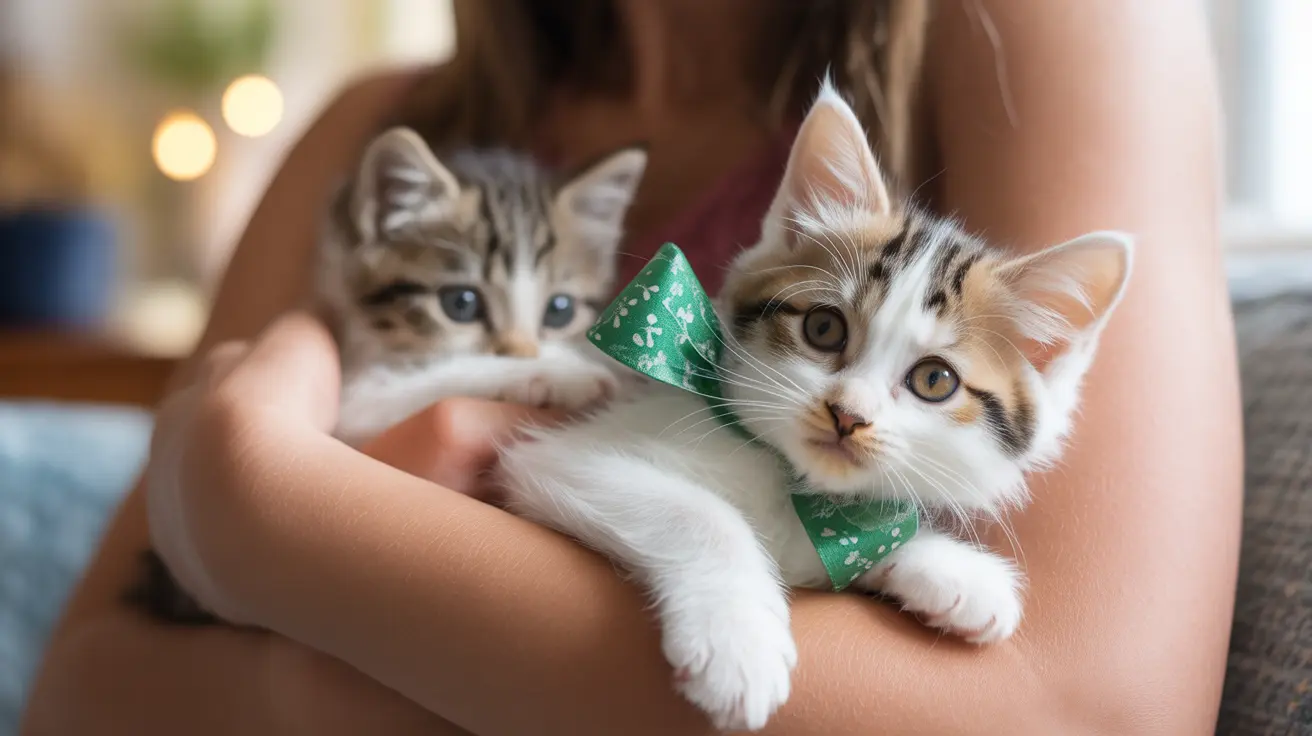Just like humans, cats can experience tooth loss throughout their lives. However, the reasons and implications vary significantly between kittens and adult cats. Understanding when tooth loss is normal versus when it signals a health concern is crucial for every cat owner.
In this comprehensive guide, we'll explore everything you need to know about cat tooth loss, from normal developmental stages to serious dental conditions requiring veterinary attention.
Normal Tooth Loss in Kittens
Kittens naturally lose their baby teeth (deciduous teeth) as part of healthy development. This process typically begins around 3-4 months of age and continues until about 6-7 months, when all 30 permanent adult teeth should be in place.
During this period, you might find tiny teeth around your home or notice your kitten eating more carefully than usual. This is completely normal and shouldn't cause concern.
Adult Cat Tooth Loss: When to Worry
Unlike kittens, adult cats should not lose their teeth. Any tooth loss in adult cats indicates an underlying health issue that requires veterinary attention. The most common causes include:
Periodontal Disease
This progressive gum disease is the leading cause of tooth loss in adult cats. Beginning with plaque buildup and gingivitis, it can advance to severe infection and tooth loss if left untreated.
Tooth Resorption
Affecting up to 60% of cats, this painful condition occurs when the body begins breaking down and absorbing the tooth structure, eventually leading to tooth loss.
Prevention and Care
Maintaining good oral health can prevent most causes of tooth loss in adult cats. Essential preventive measures include:
- Regular veterinary dental check-ups
- Daily tooth brushing with cat-specific products
- Dental-friendly diets and treats
- Professional cleaning when recommended by your vet
Signs of Dental Problems
Watch for these warning signs that might indicate your cat is developing dental issues:
- Bad breath
- Decreased appetite or difficulty eating
- Drooling or pawing at the mouth
- Red, swollen, or bleeding gums
- Visible tartar buildup
- Changes in behavior or mood
Treatment Options
If your adult cat is experiencing tooth loss, treatment options may include:
- Professional dental cleaning
- Tooth extraction for severely damaged teeth
- Antibiotics for infection
- Pain management medication
- Dietary modifications
Frequently Asked Questions
Can kittens lose their baby teeth, and when should this happen normally?
Yes, kittens naturally lose their baby teeth between 3-7 months of age as their permanent adult teeth emerge. This process is normal and similar to human children losing their baby teeth.
Why do adult cats lose their teeth, and is it ever normal for permanent teeth to fall out?
It is never normal for adult cats to lose their permanent teeth. Adult tooth loss always indicates an underlying health issue, most commonly periodontal disease or tooth resorption, requiring veterinary attention.
What are the main signs of dental disease that could lead to tooth loss in adult cats?
Key signs include bad breath, bleeding or swollen gums, difficulty eating, drooling, visible tartar buildup, and behavioral changes indicating pain or discomfort.
How can I prevent tooth loss in my cat through dental care and diet?
Prevent tooth loss through daily tooth brushing, regular veterinary check-ups, professional cleanings when needed, and feeding dental-friendly diets and treats designed to reduce tartar buildup.
What treatments are available if my adult cat starts losing teeth due to dental problems?
Treatment options include professional dental cleaning, tooth extractions if necessary, antibiotics for infection, pain management, and dietary adjustments to accommodate missing teeth.
Conclusion
While tooth loss is a normal part of kitten development, it's always a serious concern in adult cats. Regular dental care and prompt attention to oral health issues are essential for preventing tooth loss and maintaining your cat's overall well-being. If you notice any signs of dental problems or tooth loss in your adult cat, consult your veterinarian immediately for proper diagnosis and treatment.






